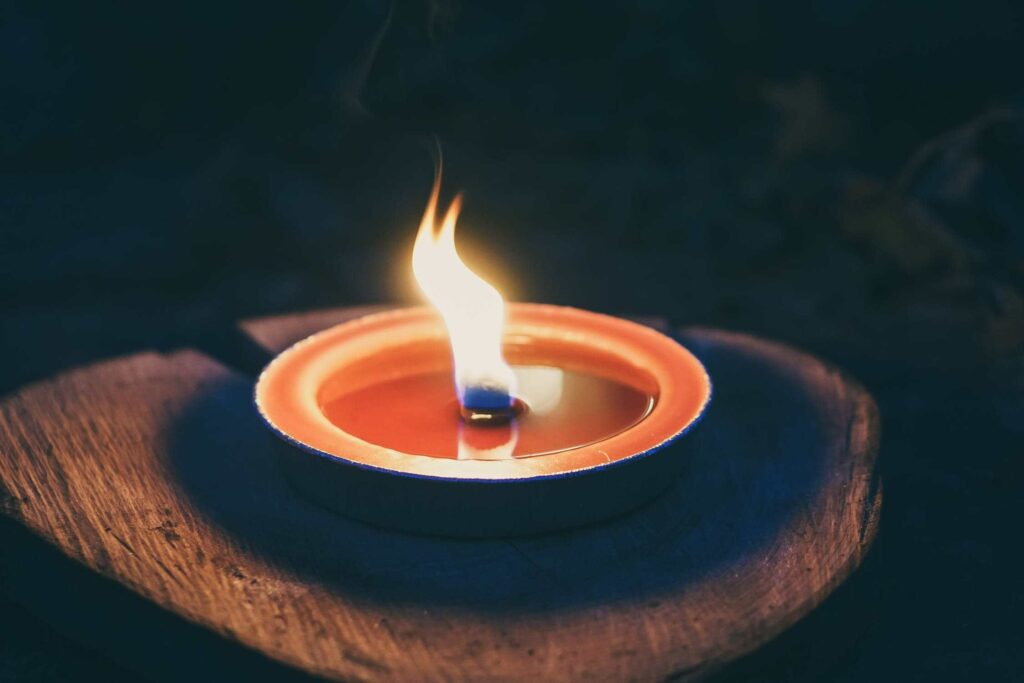As women navigate the various stages of life, hot flashes can be an unwelcome companion, disrupting daily routines and causing discomfort. While conventional medicine offers options, many individuals seek natural remedies rooted in ancient traditions. Ayurveda, the ancient Indian system of medicine, provides a holistic approach to well-being that includes personalized lifestyle recommendations and herbal remedies. In this blog, we explore hot flashes Ayurvedic treatments, offering a blend of wisdom from the past and practical solutions for the present.
Contents
Is Ayurvedic Treatment For Hot Flashes Helpful?
 Ayurvedic treatment for hot flashes can indeed offer valuable relief for individuals experiencing these episodes. Rooted in a holistic approach to well-being, Ayurveda addresses the underlying imbalances in the body, particularly focusing on the three doshas—Vata, Pitta, and Kapha. By identifying and rectifying any dosha imbalances, Ayurvedic practitioners aim to bring the body back into harmony, reducing the frequency and intensity of hot flashes.
Ayurvedic treatment for hot flashes can indeed offer valuable relief for individuals experiencing these episodes. Rooted in a holistic approach to well-being, Ayurveda addresses the underlying imbalances in the body, particularly focusing on the three doshas—Vata, Pitta, and Kapha. By identifying and rectifying any dosha imbalances, Ayurvedic practitioners aim to bring the body back into harmony, reducing the frequency and intensity of hot flashes.
Many individuals have reported significant improvements in their symptoms through Ayurvedic practices. The emphasis on natural remedies, coupled with an understanding of each person’s unique constitution, makes Ayurveda an appealing option for those seeking alternatives to conventional medicine. While individual responses may vary, the holistic nature of Ayurvedic treatment aligns with the broader goal of promoting overall well-being.
What Are Some Examples of Hot Flashes Ayurvedic Treatments?
Ayurveda offers a range of natural remedies and lifestyle modifications to address hot flashes. Here are some examples of hot flashes Ayurvedic treatments that may find beneficial:
Cooling Herbs
Ayurveda harnesses the therapeutic properties of various herbs to counteract the heat associated with hot flashes. Shatavari, revered for its cooling nature, is known to support hormonal balance in women. Aloe vera, with its soothing and hydrating qualities, aids in reducing internal heat. Licorice, not only sweet but also a potent anti-inflammatory, can contribute to pacifying the Pitta dosha. Coriander, commonly used in Ayurvedic cuisine, possesses cooling properties and can be included in meals to alleviate heat-related imbalances.
Dietary Adjustments
Ayurvedic dietary principles emphasize the impact of food on the body’s dosha balance. To mitigate hot flashes, individuals are advised to favor cooling foods. Cucumbers, with their high water content, help hydrate the body and cool internal heat. Mint, a refreshing herb, can be incorporated into salads or beverages. Coconut, with its sweet and cooling qualities, is a staple in Ayurvedic cooking. Leafy greens, abundant in vitamins and minerals, offer a nutrient-rich option. Simultaneously, reducing the intake of spicy and hot foods. This may exacerbate heat and becomes crucial in managing hot flashes.
Hydration with Herbal Teas
Herbal teas play a significant role in Ayurvedic strategies for cooling the body. Peppermint tea, known for its cooling menthol content, provides a refreshing and calming effect. Fennel tea, with its sweet and aromatic nature, aids digestion and helps balance Pitta. Chamomile, renowned for its soothing properties, contributes to overall relaxation. Consuming these herbal teas regularly can serve as a hydrating and therapeutic ritual, offering relief from the discomfort associated with hot flashes.
Abhyanga (Self-Massage)
Abhyanga, the practice of self-massage, involves the application of warm oil to the body, promoting relaxation and balance. Using cooling oils such as coconut or sandalwood during Abhyanga not only nourishes the skin but also helps dissipate excess heat. The gentle, rhythmic massage movements stimulate circulation, supporting the body’s natural healing processes. Regular Abhyanga can be particularly beneficial for individuals experiencing hot flashes, as it not only addresses the physical symptoms but also contributes to a sense of overall well-being and calmness.
Yoga Asanas and Pranayama
In Ayurveda, the practice of yoga extends beyond physical exercise, encompassing postures, and breathwork specifically tailored to balance the doshas and alleviate symptoms like hot flashes. Shitali Pranayama, a cooling breath technique, involves inhaling through a rolled tongue, producing a refreshing sensation. Moon Salutations, a sequence of yoga poses, are designed to calm the mind and cool the body.
Stress Management Techniques
Stress is a known trigger for hot flashes, and Ayurveda places significant emphasis on stress management for overall health. Meditation and mindfulness practices, integral to Ayurvedic philosophy, can help individuals cultivate a sense of inner calm and resilience. Deep breathing exercises, such as Nadi Shodhana (alternate nostril breathing), promote relaxation and balance in the nervous system. Additionally, Ayurvedic therapies like Shirodhara, where a continuous stream of warm oil is poured onto the forehead, have proven effective in reducing stress levels.
Ayurvedic Formulations
Ayurvedic practitioners may recommend specific herbal formulations or supplements to address hormonal imbalances and mitigate hot flashes. These formulations are often tailored to an individual’s unique constitution, taking into account factors such as age, doshic balance, and overall health. Common ingredients include adaptogenic herbs like Ashwagandha, which can support the body’s response to stress and herbs with estrogenic properties like Shatavari. These formulations aim to nourish the reproductive system, balance hormones, and alleviate symptoms.
It’s important to note that Ayurvedic treatments are highly individualized. And consulting with an Ayurvedic practitioner can provide personalized guidance based on one’s unique constitution and health profile. Additionally, individuals should integrate these practices gradually and consistently for the best results.
How Can I Stop Hot Flashes Permanently?
 While it’s challenging to guarantee a permanent cessation of hot flashes, there are several lifestyle modifications and practices that may help manage and reduce the frequency and intensity of hot flashes over the long term:
While it’s challenging to guarantee a permanent cessation of hot flashes, there are several lifestyle modifications and practices that may help manage and reduce the frequency and intensity of hot flashes over the long term:
- Maintain a Healthy Weight
Maintaining a healthy weight is essential, as excess body weight can contribute to hormonal imbalances and exacerbate hot flashes. Regular exercise, along with a nutritious diet, can support weight management and positively impact hormonal health.
- Stay Active
Regular physical activity has been shown to alleviate hot flashes. Engage in activities you enjoy, such as brisk walking, swimming, or cycling. Exercise not only helps regulate hormones but also improves overall well-being and mood.
- Mindful Breathing Techniques
Incorporate mindful breathing techniques into your daily routine. Techniques such as deep abdominal breathing and paced respiration can help regulate the autonomic nervous system, potentially reducing the frequency of hot flashes.
- Limit Triggers
Identify and limit potential triggers for hot flashes. Common triggers include spicy foods, caffeine, alcohol, and stress. Minimizing exposure to these triggers can contribute to better symptom management.
- Stay Cool
Create a comfortable environment by keeping your living space cool. Use fans, wear light and breathable clothing, and sleep in a well-ventilated room. Staying cool can help minimize the discomfort associated with hot flashes.
- Consult with Healthcare Professionals
If hot flashes persist or significantly impact your quality of life, consult with healthcare professionals. They can provide personalized guidance, discuss medical interventions if necessary, and rule out any underlying health conditions contributing to the symptoms.
It’s important to note that individual responses to these strategies can vary, and what works for one person may not work for another. Finding the right combination of lifestyle changes and interventions often involves a process of trial and adjustment.
What Are The Pros And Cons Of Hot Flashes Ayurvedic Treatments?
 The following are some pros and cons of hot flashes Ayurvedic treatments to consider:
The following are some pros and cons of hot flashes Ayurvedic treatments to consider:
Pros
- Holistic Approach: Ayurvedic treatments take a holistic approach, addressing not only the symptoms but also the root causes of hot flashes. This comprehensive perspective considers an individual’s unique constitution, lifestyle, and overall well-being.
- Natural Remedies: Ayurveda primarily relies on natural remedies, including herbs, dietary adjustments, and lifestyle modifications. This can be appealing to individuals seeking alternatives to pharmaceutical interventions, as these remedies often have fewer side effects.
- Personalization: These treatments are highly personalized, with practitioners tailoring recommendations based on an individual’s doshic constitution, imbalances, and health history. This individualized approach aims to provide targeted and effective solutions.
- Emphasis on Prevention: Ayurveda places a strong emphasis on preventive measures to maintain overall health. By adopting Ayurvedic practices, individuals may manage hot flashes. And also enhance their general well-being and resilience to imbalances.
Cons
- Varied Responses: These treatments may yield varied responses among individuals. What works for one person may not work for another due to differences in constitution, lifestyle, and the underlying causes of hot flashes.
- Time-Intensive: Hot flashes Ayurvedic treatments often require consistency and time for noticeable effects. Unlike some conventional medications that may offer quick relief, individuals may need to commit to lifestyle changes and herbal interventions over an extended period.
- Limited Scientific Evidence: While Ayurvedic treatments have a long history of use, the scientific evidence supporting their efficacy for hot flashes may be limited compared to conventional medical interventions. Some individuals may prefer treatments with a more extensive evidence base.
- Need for Professional Guidance: Proper application of Ayurvedic treatments requires expertise. Consulting with a qualified Ayurvedic practitioner is crucial to ensure personalized and safe recommendations. However, access to experienced practitioners may be limited in certain regions.
- Potential Allergies or Interactions: Herbs and supplements used in Ayurvedic treatments can have allergic reactions or interactions with other medications. It’s essential to inform healthcare providers about any Ayurvedic remedies being used to avoid potential complications.
- Cultural Sensitivity: Ayurveda is deeply rooted in Indian culture, and some individuals may find it challenging to integrate Ayurvedic practices into their daily lives due to cultural differences or lack of familiarity with traditional concepts.
Overall, while Ayurvedic treatments for hot flashes offer a holistic and natural approach, individuals should carefully weigh the pros and cons, considering their preferences, health conditions, and the level of commitment required for sustained benefits.
Conclusion
In conclusion, exploring Ayurvedic treatments for hot flashes reveals a holistic and personalized approach deeply rooted in natural remedies and ancient wisdom. By embracing cooling herbs, mindful dietary adjustments, and nurturing self-care practices like Abhyanga and yoga, individuals can potentially find relief from hot flashes. The emphasis on balancing doshas and addressing lifestyle factors underscores Ayurveda’s commitment to overall well-being.
While the effectiveness of these treatments may vary among individuals, the potential benefits extend beyond symptom management to encompass a transformative journey toward enhanced health and vitality. For those seeking a natural and personalized path to alleviate hot flashes, Ayurveda offers a rich tapestry of practices that honor the body’s innate wisdom. If you are facing PCOS-related issues, PCOS treatment at HerMantra can help. Book your free trial online pcos treatment session now.


